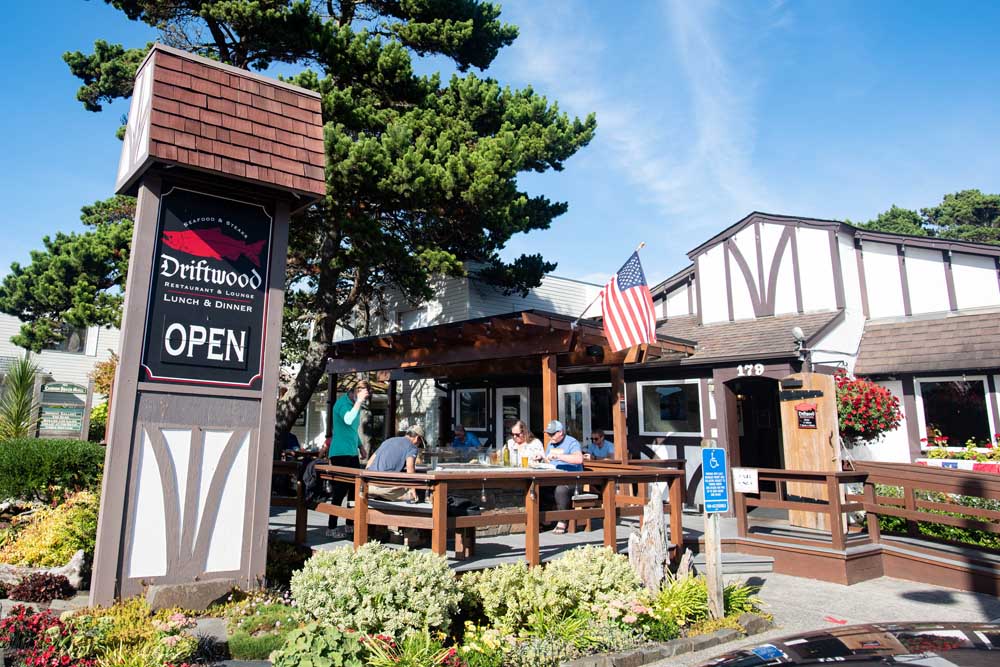Cannon Beach food tax money could aid firefighter housing
Published 7:55 am Friday, August 6, 2021

- Driftwood Restaurant & Lounge in Cannon Beach.
CANNON BEACH — If voters pass a controversial tax on prepared food in November, Fire Chief Marc Reckmann hopes to use some of the money on housing for volunteer firefighters.
Even as the fire district responds to an increasing number of calls, it is losing or in danger of losing volunteers as home prices soar on the coast and rental options are often expensive and scarce, Reckmann told The Astorian.
The proposed 5% food tax was pitched as a way to spread the costs of running the Cannon Beach Rural Fire Protection District and funding city infrastructure projects between visitors and residents.
Proponents argue the tax would have little impact on businesses and be a boon to the city overall. The service industry has pushed back, saying the tax could hurt businesses as they continue to weather restrictions and challenges tied to the coronavirus pandemic.
The City Council considered passing the measure themselves, but decided to put the matter to voters. If the measure passes, Reckmann expects the fire district will see around $800,000 annually from the tax.
Housing for volunteer firefighters is not the first priority if the tax passes. The fire district would look to hire a fire marshal and finalize a contract with Medix for local ambulance services. But it’s up near the top.
Volunteers are the backbone of the fire district, which only has three paid employees. A number of them are in precarious living situations. Only three own homes in Cannon Beach.
“Everyone else rents and those rentals are being sold,” Reckmann said.
He has one volunteer who is between housing and is temporarily living at the station. Another volunteer was living in an attic until recently.
Housing has been a dominant policy issue on the North Coast for the past several years.
The housing market picked up last year despite the pandemic. It has yet to slow, both in urban places like Portland and on the North Coast, where the market value for some homes has more than doubled. In Astoria, a house that sold last year for $145,000 was listed for more than half a million dollars this year. In Cannon Beach, where housing has often been especially expensive, buying a home is out of reach for many who work in the town.
Across Clatsop County, workforce-priced and affordable housing remains limited.
Reckmann himself bought a house in Seaside because he couldn’t afford to buy in Cannon Beach. He’s on the south side of Seaside, within 15 minutes from Cannon Beach, but it’s a situation that hampers response time and, in his opinion, sends a bad message.
The fact that some of the food tax revenue could go to housing for volunteer firefighters has not been widely known. City Councilor Robin Risley asked for more information at a city work session Wednesday.
Reckmann said that while it is a priority, it is not something that would happen immediately.
In the first year, much of the fire district’s share of the tax revenue would likely go to paying for the fire marshal and the contract with Medix. A portion would also go back to businesses to help cover the initial costs of implementing the tax.
But, by the second or third year, Reckmann would hope to have a conversation about the fire district buying or renting housing in Cannon Beach for volunteers.
He hopes to continue to rent a small home the district had reserved for the fire chief and offer it to volunteers instead. The house proved too small for Reckmann, his wife and their three children, but the money for the house has already been budgeted.
The fire district needs to retain volunteers, Reckmann told the City Council — a challenge as call levels remain high and volunteers face burnout.
Since September 2020, the fire district has broken call records every month with the exception of December and March, when the call load hit average levels. At the same time, a labor shortage seen across multiple industries nationwide is also affecting Cannon Beach’s volunteer firefighters.
All of Reckmann’s volunteers have other jobs or own their own businesses. With the labor shortage, many are working longer hours or more frequent hours and have less time to give. On recent calls, some volunteers were stuck at work.





